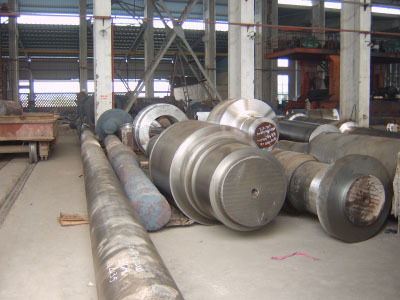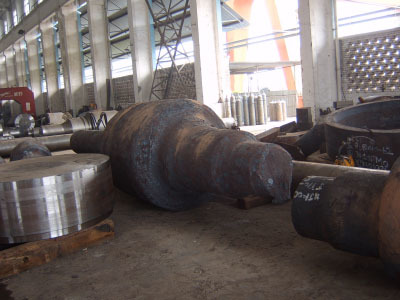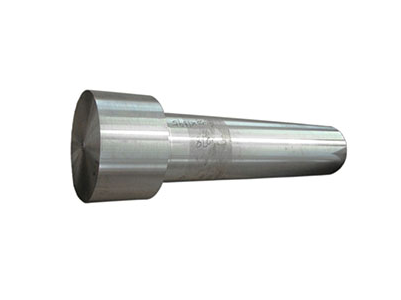Understanding Open-Die Forged Shafts in Steel Production for Drive Systems
Release Time:
Oct 31,2025
Open-die forging is a metalworking process that shapes and forms pieces of metal by applying compressive forces using hammers or presses. This technique is particularly valuable in the production of steel shafts, which play a crucial role in various applications, especially in the automotive and machinery sectors. When it comes to drive systems, open-die forged shafts are integral components, offe

Open-die forging is a metalworking process that shapes and forms pieces of metal by applying compressive forces using hammers or presses. This technique is particularly valuable in the production of steel shafts, which play a crucial role in various applications, especially in the automotive and machinery sectors. When it comes to drive systems, open-die forged shafts are integral components, offering several advantages over other manufacturing methods.
One of the primary benefits of open-die forging is the ability to produce shafts with superior mechanical properties. The process involves heating the metal to a plastic state, allowing it to be shaped without losing its intrinsic strength. As a result, open-die forged shafts exhibit enhanced fatigue resistance, ductility, and tensile strength, which are essential qualities for components subject to high stress and dynamic loads in automotive applications.
In the context of steel production, the forging process contributes significantly to the overall efficiency and reliability of the manufactured shafts. Open-die forging allows for the creation of shafts in various sizes and shapes, tailored to meet specific performance criteria. This flexibility is crucial for manufacturers who need to produce shafts for different types of vehicles and machinery, ensuring that each component meets the required specifications.
Moreover, open-die forged shafts provide excellent dimensional accuracy and surface finish, which are critical for ensuring proper fit and function within the drive systems. The forging process minimizes the occurrence of defects such as porosity and inclusions, which can compromise the integrity of the shaft. This quality control is vital for maintaining the high standards required in the automotive industry, where safety and performance are paramount.
Environmental considerations are increasingly important in manufacturing processes, and open-die forging is no exception. This method typically results in less waste compared to other fabrication techniques, as the process efficiently uses raw materials. Additionally, advancements in forging technology continue to improve energy efficiency, further reducing the environmental impact of steel production.
In summary, open-die forged shafts are essential components in the steel production industry, particularly within the automotive and parts sector. Their unique properties, achieved through the forging process, make them ideal for use in drive systems and drive shafts. The benefits of enhanced mechanical properties, dimensional accuracy, and environmental efficiency underscore the importance of this manufacturing technique in today's automotive landscape. Understanding these advantages enables manufacturers to make informed decisions about the materials and processes they utilize, ultimately leading to better-performing products in the competitive automotive market.
One of the primary benefits of open-die forging is the ability to produce shafts with superior mechanical properties. The process involves heating the metal to a plastic state, allowing it to be shaped without losing its intrinsic strength. As a result, open-die forged shafts exhibit enhanced fatigue resistance, ductility, and tensile strength, which are essential qualities for components subject to high stress and dynamic loads in automotive applications.
In the context of steel production, the forging process contributes significantly to the overall efficiency and reliability of the manufactured shafts. Open-die forging allows for the creation of shafts in various sizes and shapes, tailored to meet specific performance criteria. This flexibility is crucial for manufacturers who need to produce shafts for different types of vehicles and machinery, ensuring that each component meets the required specifications.
Moreover, open-die forged shafts provide excellent dimensional accuracy and surface finish, which are critical for ensuring proper fit and function within the drive systems. The forging process minimizes the occurrence of defects such as porosity and inclusions, which can compromise the integrity of the shaft. This quality control is vital for maintaining the high standards required in the automotive industry, where safety and performance are paramount.
Environmental considerations are increasingly important in manufacturing processes, and open-die forging is no exception. This method typically results in less waste compared to other fabrication techniques, as the process efficiently uses raw materials. Additionally, advancements in forging technology continue to improve energy efficiency, further reducing the environmental impact of steel production.
In summary, open-die forged shafts are essential components in the steel production industry, particularly within the automotive and parts sector. Their unique properties, achieved through the forging process, make them ideal for use in drive systems and drive shafts. The benefits of enhanced mechanical properties, dimensional accuracy, and environmental efficiency underscore the importance of this manufacturing technique in today's automotive landscape. Understanding these advantages enables manufacturers to make informed decisions about the materials and processes they utilize, ultimately leading to better-performing products in the competitive automotive market.
多行文本内容元素
富文本内容绑定数据后可解析HTML语言内容
Key words:
News Hotspot








